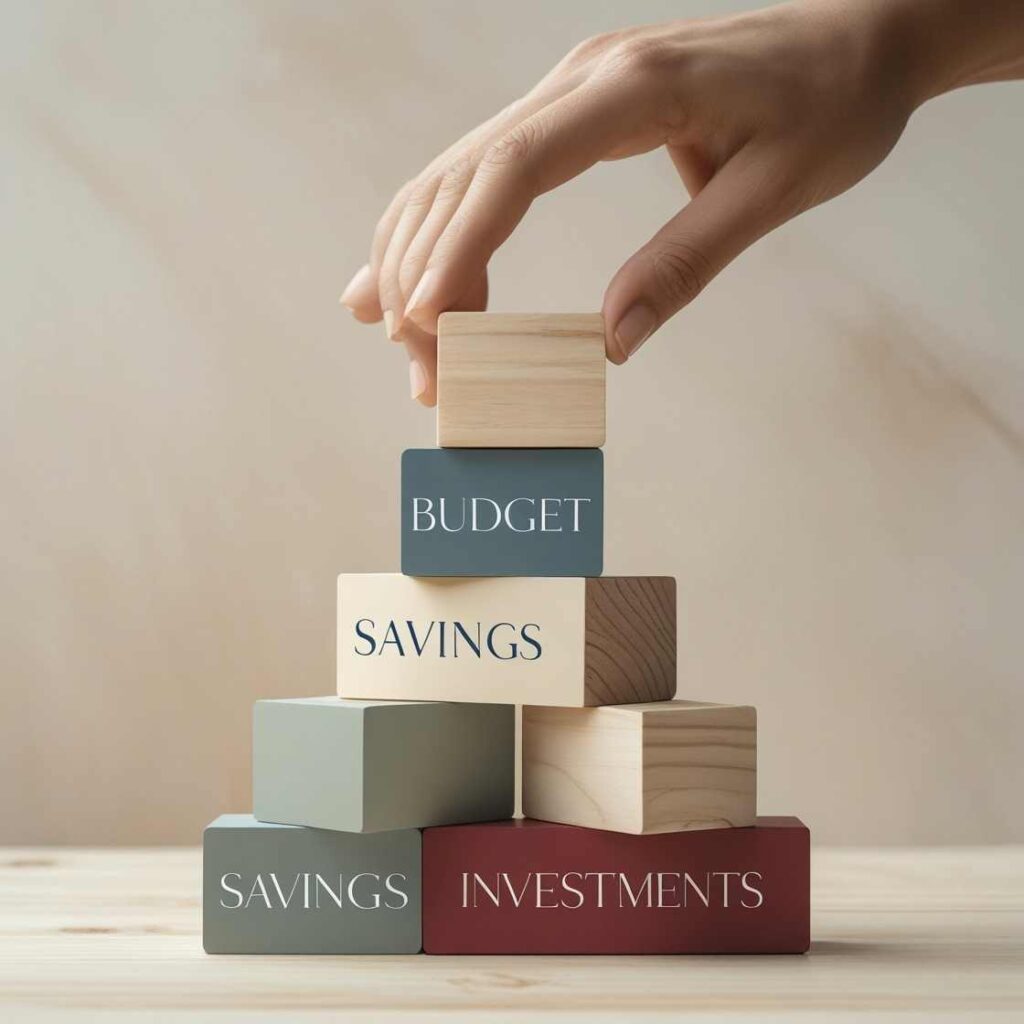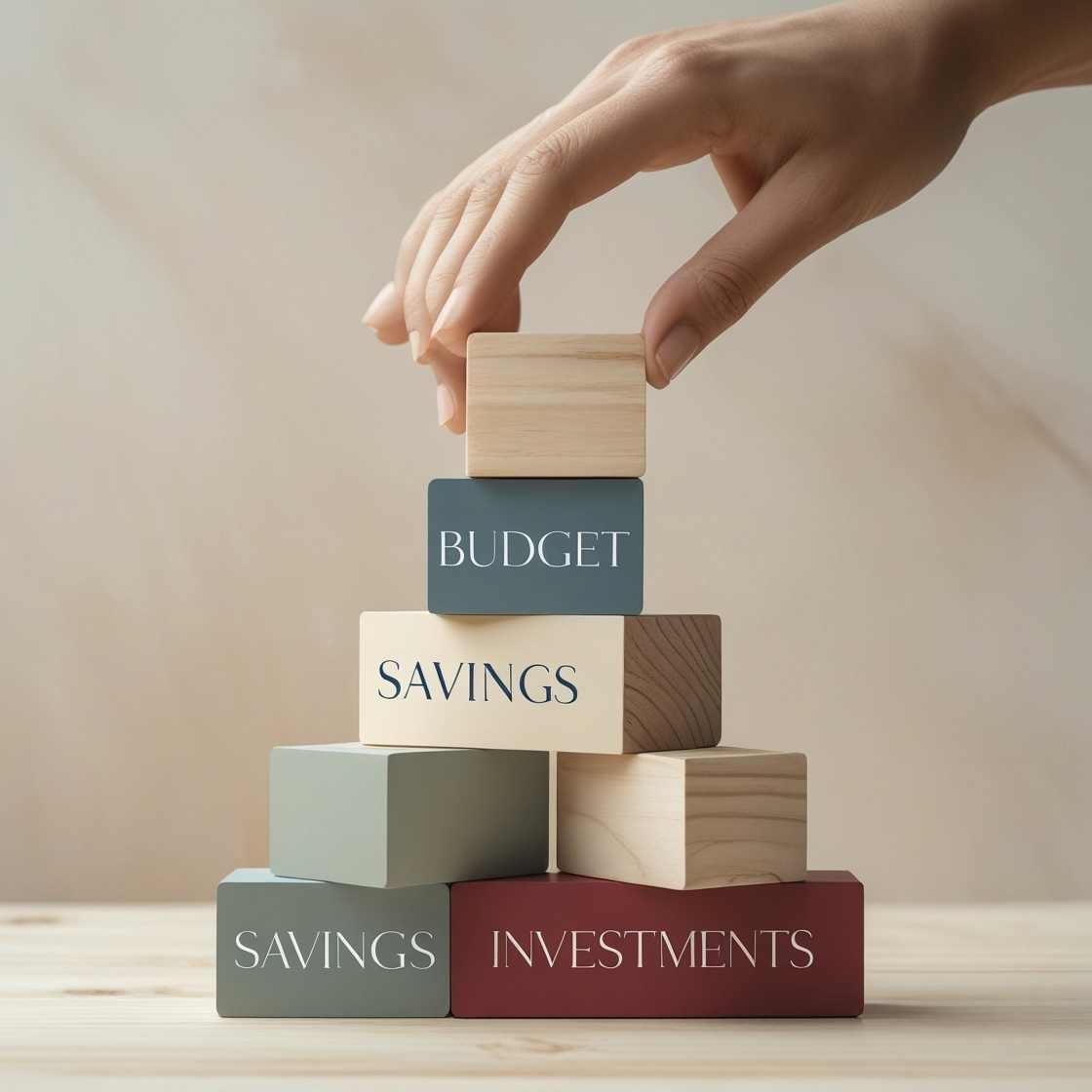Discover 7 smart personal finance habits to achieve financial freedom in 2025. Learn budgeting, saving, and investing tips to secure your financial future. #smart personal finance habits, #personal finance tips, #money management strategies, #financial habits, #financial planning success, #MoneyHabits, #FinancialFreedom, #FinancialWellness,

Introduction
Managing money effectively is the cornerstone of financial stability, yet many struggle to build smart personal finance habits that lead to lasting wealth. Adopting disciplined financial habits is more important than ever in 2025 because of growing expenses, economic uncertainty, and limitless spending temptations. Developing smart personal finance habits can change your financial life, regardless of your level of experience. Seven smart behaviours are examined in this article to help you increase your savings, make prudent purchases, and increase your wealth. These tactics, which range from automating saves to developing a reasonable budget, are useful, doable, and intended to put you on the road to financial independence.
7 Smart Personal Finance Habits to Adopt in 2025
1. Create and Stick to a Realistic Budget
A budget is the foundation of smart personal finance habits. It helps you prevent overspending by giving you a comprehensive picture of your income, expenses, and potential savings. Track your income first, then divide your expenses into necessities (rent, electricity, groceries) and non-essentials (subscriptions, eating out). Apply the 50/30/20 rule: set aside 20% for debt repayment or savings, 30% for wants, and 50% for needs. Tracking can be made easier with apps like Mint or YNAB. Make sure your budget is realistic and helps you achieve your financial objectives by reviewing it every month to account for changes in income or expenses.
Pro Tip: To make it simpler to keep to your plan and prevent feelings of deprivation, include a modest “fun fund” in your budget.
2. Automate Your Savings
Saving consistently is a hallmark of smart personal finance habits, but it’s easy to forget or spend before you save. By automatically moving a certain amount to a savings account as soon as payday arrives, automating savings eliminates the temptation. Establish recurring deposits into an investment platform such as a Roth IRA or a high-yield savings account. In five years, for instance, $200 saved per month at a 5% annual interest rate might increase to over $15,000. By prioritising savings, automation makes it easy to accumulate wealth over time.
Pro Tip: To develop your savings muscle stress-free, start small (e.g., 5% of your income) and increase the amount each year.
3. Pay Off High-Interest Debt Strategically
Credit card debt, particularly high-interest balances, might impede your financial success. A smart personal finance habit is to approach debt strategically by employing techniques such as the debt snowball (paying off the smaller balances first for momentum) or the debt avalanche (paying off the highest-interest debt first). Paying off a $5,000 credit card debt at 18% interest, for instance, can save you hundreds of dollars in interest each year. Avoid minimal payments since they raise expenses and prolong debt. For a reduced interest rate, think about combining debts if you’re feeling overburdened.
Pro Tip: To speed up repayment, ask creditors for reduced rates or use balance transfer cards with 0% introductory APR.
4. Build an Emergency Fund
Even the finest financial plans can be derailed by unforeseen costs, such as auto maintenance or medical bills. One important smart personal finance habit is having a sizable emergency fund, which acts as a safety net to prevent debt. In a high-yield savings account, aim to save three to six months’ worth of living costs. For example, aim for $9,000 to $18,000 if your monthly expenses are $3,000. Save $1,000 to start modest, then add to it over time. In times of crisis, this fund provides comfort and helps you stay on course with your financial objectives.
Pro Tip: To avoid taking money out of your emergency fund for non-emergencies, keep it distinct from your checking account.
5. Invest Early and Consistently
Investing is a powerful way to grow wealth, and smart personal finance habits include starting early to leverage compound interest. Over time, even modest, consistent investments in inexpensive index funds or exchange-traded funds (ETFs) can generate sizable returns. For instance, in 30 years, a $100 monthly investment in a fund with an 8% annual return may increase to almost $150,000. Platforms like Vanguard or Fidelity offer beginner-friendly solutions if you’re new to investing. To reduce risk and maintain alignment with your objectives, diversify your portfolio and review it every year.
Pro Tip: Benefit from employer-sponsored 401(k) plans, particularly if they include matching contributions. This is a great way to get free money!
6. Practice Mindful Spending
Mindful spending means aligning your purchases with your values and long-term goals, a core component of smart personal finance habits. Consider this before making a purchase: “Do I need this? Does it make my life more meaningful? Put in place a 24-hour rule for non-essential things to prevent impulsive purchasing. Keep tabs on your discretionary expenditure to spot trends, such eating out frequently, and then reroute the money to investments or savings. With the proliferation of subscription services in 2025, examine and terminate unused memberships to free up funds.
Pro Tip: To prevent accruing credit card debt, make discretionary purchases with cash or a debit card.
7. Educate Yourself Continuously
Financial literacy is the backbone of smart personal finance habits. To make wiser judgements, keep up with tax regulations, investment opportunities, and personal financial trends. Go through books like “The Millionaire Next Door” or read trustworthy blogs about money. YouTube videos like Graham Stephan and podcasts like “The Money Guy Show” provide helpful advice for 2025. Take part in webinars or workshops to expand your expertise. Your confidence in efficiently managing your funds will increase as you gain more knowledge.
Pro Tip: Set aside thirty minutes every week to master the fundamentals of cryptocurrencies or tax-advantaged accounts, for example.
Conclusion
Adopting smart personal finance habits in 2025 is your ticket to financial freedom. You can take charge of your finances and create long-lasting wealth by setting up a sensible budget, automating saves, paying off debt, saving for emergencies, investing early, engaging in mindful spending, and educating yourself. Discipline is necessary for these behaviours, but the benefits are enormous, ranging from less stress to the opportunity to reach major objectives like home ownership or early retirement. Start little, maintain consistency, and see your financial future grow. You’ll be astounded by the progress you make by the end of the year if you start putting one or two of these wise personal financial practices into practice today.
FAQ
Q1: What are smart personal finance habits?
Effective money management is facilitated by smart personal finance habits, which include budgeting, automated savings, debt repayment, and consistent investing to reach financial objectives.
Q2: How can I start building smart personal finance habits?
Start with a single habit, such as setting up an automated savings account or budget. Utilise applications to monitor your success and progressively add new routines, like investing or mindful spending.
Q3: Why is an emergency fund important for smart personal finance habits?
An emergency fund keeps your financial objectives on track, prevents debt, and offers a safety net for unforeseen costs.
Q4: How much should I save to practice smart personal finance habits?
At least 20% of your salary should be saved, first for an emergency fund that covers three to six months’ worth of expenses, and then for investments or retirement accounts.
Q5: Can beginners adopt smart personal finance habits?
Of course! To gain confidence and momentum, start with easy actions like keeping track of spending, setting aside little sums, and studying fundamental financial principles.
Disclaimer
This article’s content is intended solely for educational purposes and is not intended to be financial advice. Prior to making important financial decisions, seek advice from a professional financial counsellor. Results may differ for each person depending on their unique situation.
Also Read:
- Kohli Test Career Financial Discipline: 7 Ultimate Lessons for Winning in Personal Finance
- Why Insurance Is a Smart Financial Decision: 5 Ultimate Reasons
- 5 Key Personal Finance Rules Everyone Should Follow
- National Pension System 2025: Key Timing for Investment to Maximize Returns & Tax Benefits
- Financial Literacy for Indians – RBI Guide
- 5 effective personal finance management tips

